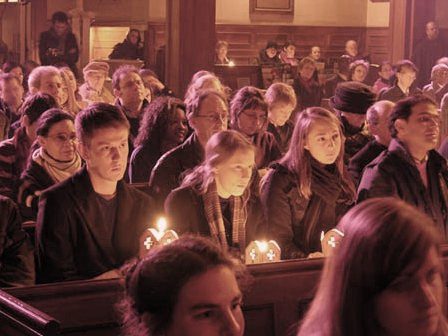How can a tiny state in northern New England be so important in the U.S. presidential selection process? New Hampshire is miniscule – smaller than the average county in Wyoming, Arizona or Nevada. It’s 42nd in U.S. population — even little Puerto Rico out in the Caribbean has more people, more than twice as many, actually.

Yet, every four years, politicians flock to the Granite State in hopes of a dramatic win in its presidential primary election – the first in the nation.
A loss can be catastrophic. When Democratic challenger Estes Kefauver defeated incumbent President Harry S. Truman there in 1952, Truman abandoned his campaign for a second term. At the height of the Vietnam War in 1968, President Lyndon Johnson managed only a 49 percent victory over Senator Eugene McCarthy and withdrew from the race with his famous prime-time TV declaration: “I shall not seek, and will not accept, the nomination of my party for another term as your president.”
By New Hampshire state law, the primary is the first in the nation. If another state moves theirs up, New Hampshire responds in kind. New Hampshire State Statute 653:9 stipulates that the primary must take place at least seven days before any “similar election” in any other state.
Somehow, New Hampshire lawmakers do not consider the Iowa caucuses to be “a similar election,” so, in recent election cycles, the primary has taken place a week or so after the Iowa event.
But when other states have sought to move up their primaries to dilute New Hampshire’s impact, state law always kicks in. From 1952 to 1968, the primary was held on the second Tuesday in March. In 1972, it was shifted to the first Tuesday in March. From 1976 to 1984, it was advanced to the fourth Tuesday in February. From 1988 to 1996, it was moved up to the third Tuesday in February, then in 2000 was held on February 1.
In 2004, it was moved up to the fourth Tuesday in January, then in 2008, it advanced to the earliest date yet — on the second Tuesday in January, where it remains.
Although only a tiny number of delegates are chosen, the New Hampshire primary’s vast importance comes from the massive media coverage it receives. In recent years, it and the Iowa caucuses received


